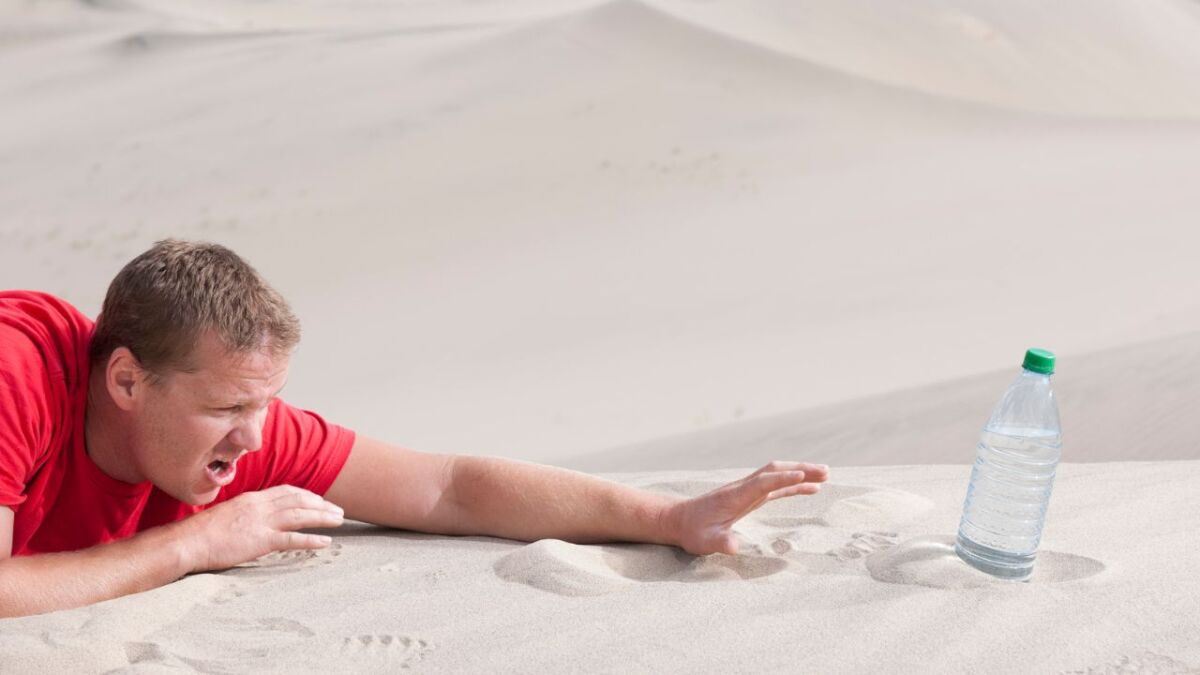
Survival time without water: How long can the body survive without fluids?
👉 The key facts from this guide
- The survival time without water depends on many factors, including environmental conditions, physical exertion, and individual physical characteristics.
- The human body consists of about 60% water and requires it for vital functions such as lung, blood, and brain function.
- In extreme conditions, the body can lose up to 1.5 liters of water per hour, which can lead to dehydration and ultimately organ failure.
- There are measures that can be taken to minimize water loss, such as reducing physical exertion, wearing clothing, breathing through the nose, and avoiding excessive thinking.
- Preparation and knowledge of water sources in nature are crucial for survival in situations where water is scarce.
Have you ever thought about how long your body can survive without water?
This is an important topic because without enough fluid, health problems can quickly arise.
Especially in survival situations, water supply is usually the top priority!
The issue is that many people do not know how long they can go without water and when they need to act. And what actually happens if I don't take in any water?
On average, a person can only survive for about 3 to 5 days without water. This period depends on factors such as temperature, activity level and individual health status.
In this article, I will show you how long the body can survive without water and what you can do to ensure that you always have enough fluid.
Let's go through the topic together and see how we can find the solution.
Have you ever been really thirsty and had no water in sight for miles?
In the wilderness, such a situation can be fatal.
That's precisely what happened to me once (more than 10 years ago) on a hike in Australia. My Camelback had burst the night before, and I was in the middle of nowhere.
No reserve bottle or river nearby.

I knew I would be back in town at the end of the next day, but first there was a several hour hike ahead of me.
I took advantage of the morning hours and set out before sunrise. It was still hot. By noon, the first symptoms began to set in: I was drowsy, the headaches got worse, and my throat was completely dry.
At first, I was still sweating, but later even that stopped. Clear thinking became increasingly difficult and if I got lost now, it would only be possible to return with luck.
I managed to make it back to civilization later and was able to get a large bottle of water from the supermarket, but I don't even want to imagine the situation in a desert or similarly hopeless situation.
Many people know the "rule of 3" which states, among other things, that we can live without water for three days. There are also cases where people have survived much longer without water.
But what is really true, and what factors play a role? In the following, I will take an in-depth and realistic look at the topic of "surviving without water."
What does my survival depend on?
Three minutes without air, three hours in extreme conditions (heat or cold), three days without water, and three weeks without food.
Almost everyone in survival circles knows the rule of 3, and it does have some truth to it. However, if you have been exposed to extreme situations before, this rule is a strong generalization (Read here: The Survival Rule of Three - a Solid Structure or Not Useful?). This also applies to your water intake.
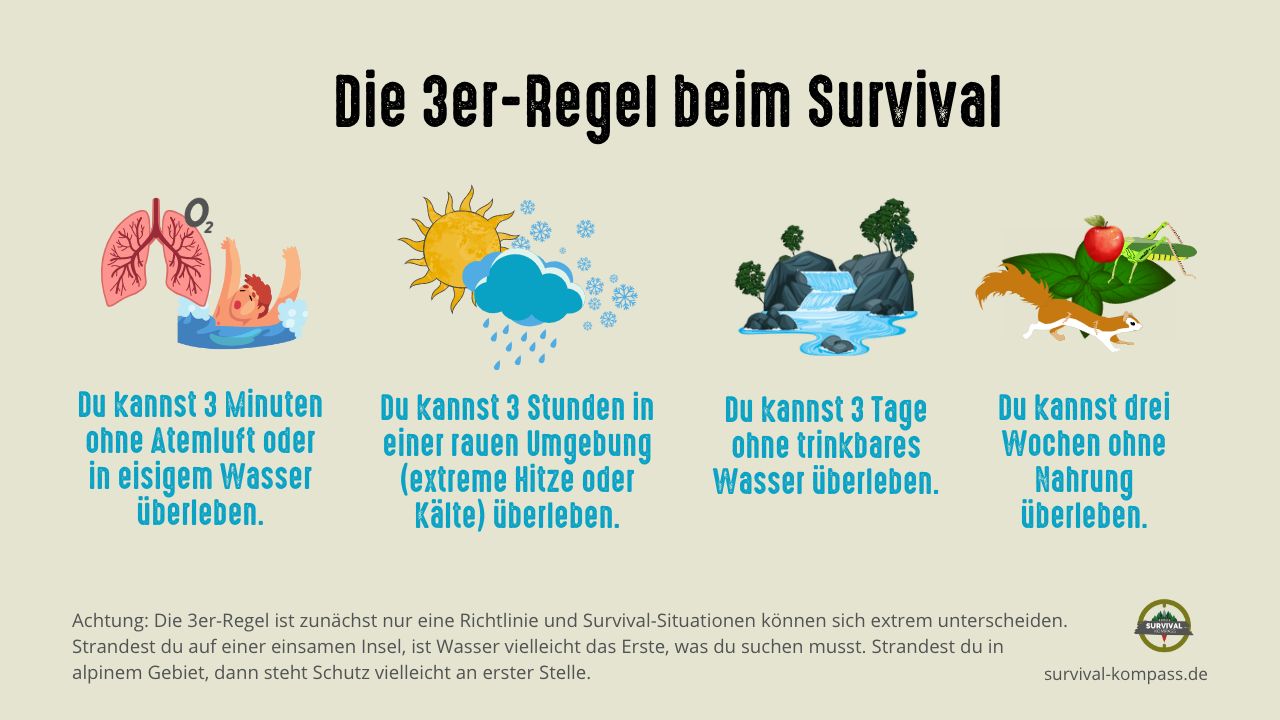
In ideal conditions, you can certainly survive without water for three days, but with strong heat accompanied by diarrhea and vomiting, you can be dead in a matter of hours.
Your body type also plays a role here, as well as whether you are exposed to physical exertion or not. The situation is much more different for a child. Children tend to dry out much faster than adults.
As you can see, various factors influence your chances of survival without water.
Our body needs water
Our body consists of about 60 percent water. The lungs, blood, and brain could not function without water.
At the same time, we excrete between two and two and a half liters of water per day. This depends on gender, body type, activity level, and much more, but you understand what I mean.
If the water does not come back in during the day, our body suffers and loses performance, which can ultimately lead to the failure of the affected organs.
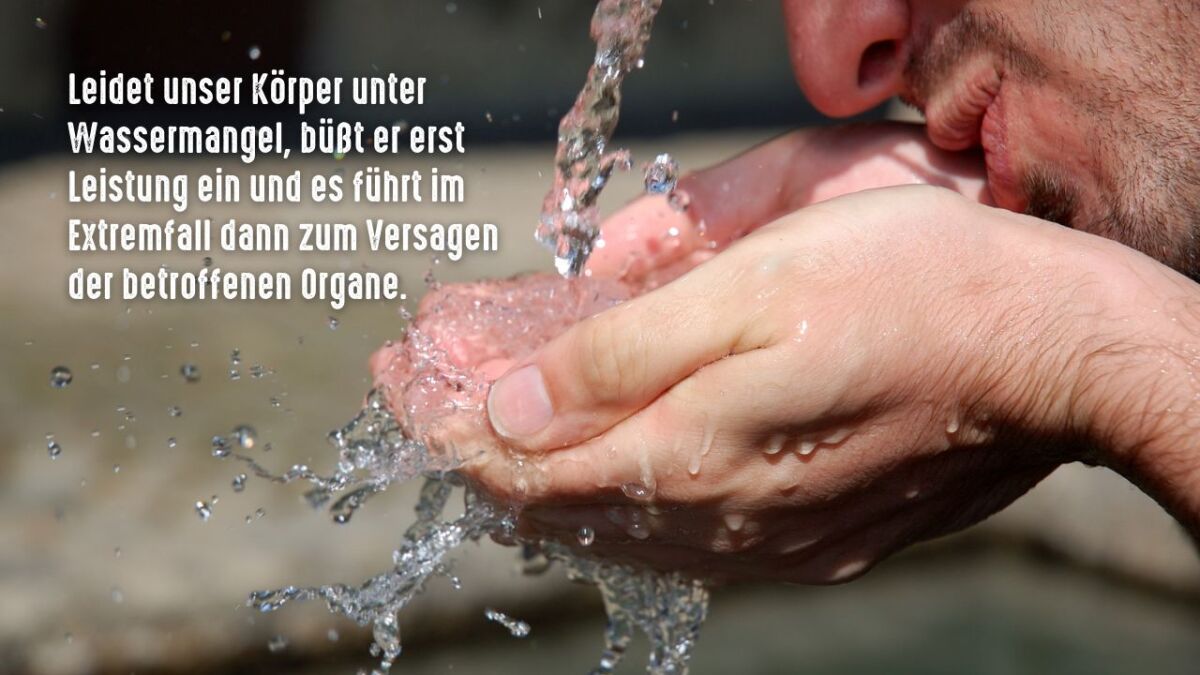
This applies to normal conditions. Under extreme circumstances, the body can excrete up to 1.5 liters per hour.
The consequences are: Without water, there is no sweat, and without sweat, the body cannot regulate its temperature. It is a fatal disadvantage in the heat!
In addition, there is the detoxifying function of the liver and kidneys, which depend heavily on water to flush out toxins.
If there is not enough water, the substances cannot be excreted and accumulate here. Ultimately, this can significantly damage the function of the organs.
Read also
The ultimate survival list: These 7 things you need on a deserted island - Discover the 7 indispensable equipment items for a deserted island. With our ultimate survival list and tips, you are well-equipped.
How long can we survive without water?
There are examples of people who lived for seven days without water. However, these are studies in people at the end of their lives who could no longer eat or drink.
However, in survival situations, adventurers have been known to survive for more than 4 days without water. This was also explored in a study.
But the reality is somewhat different!
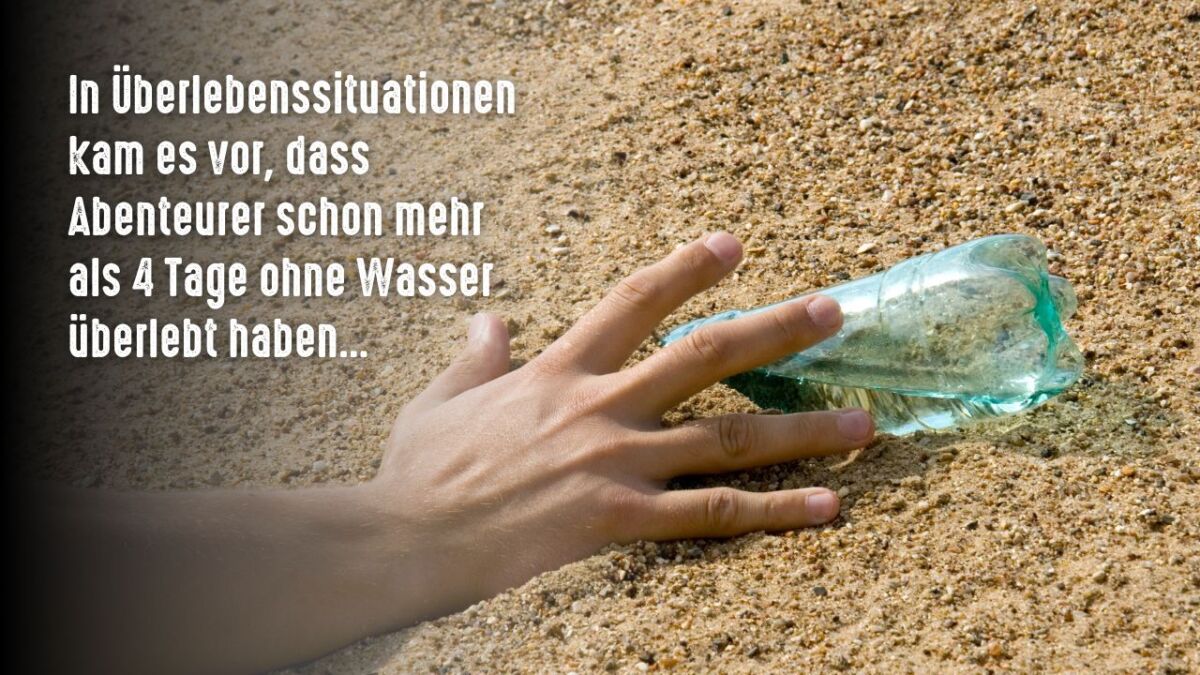
In California, a dockworker was buried under a building in his car during an earthquake. The man survived for 4 days without any water before being rescued.
He was taken to the hospital and his condition improved. However, the miracle was short-lived. Several weeks later, the man died from the effects of dehydration. His organs failed, and the doctors could not save him.
Therefore, the question should actually be:
How long can I survive without water without long-term consequences?
As we have seen above, you can survive for many days without water and still be at risk of death for weeks afterward.
However, it is difficult to say when these irreversible damages to your organs can occur. This depends too much on your physical features and circumstances, making it difficult to give a clear answer.
The incident in California occurred many years ago, and our medicine has advanced since then. Therefore, the chances are higher now.
However, we can still run into bad luck in the end.
Your body can experience organ damage even under ideal conditions after just two days without water.
The situation becomes critical on the third day.
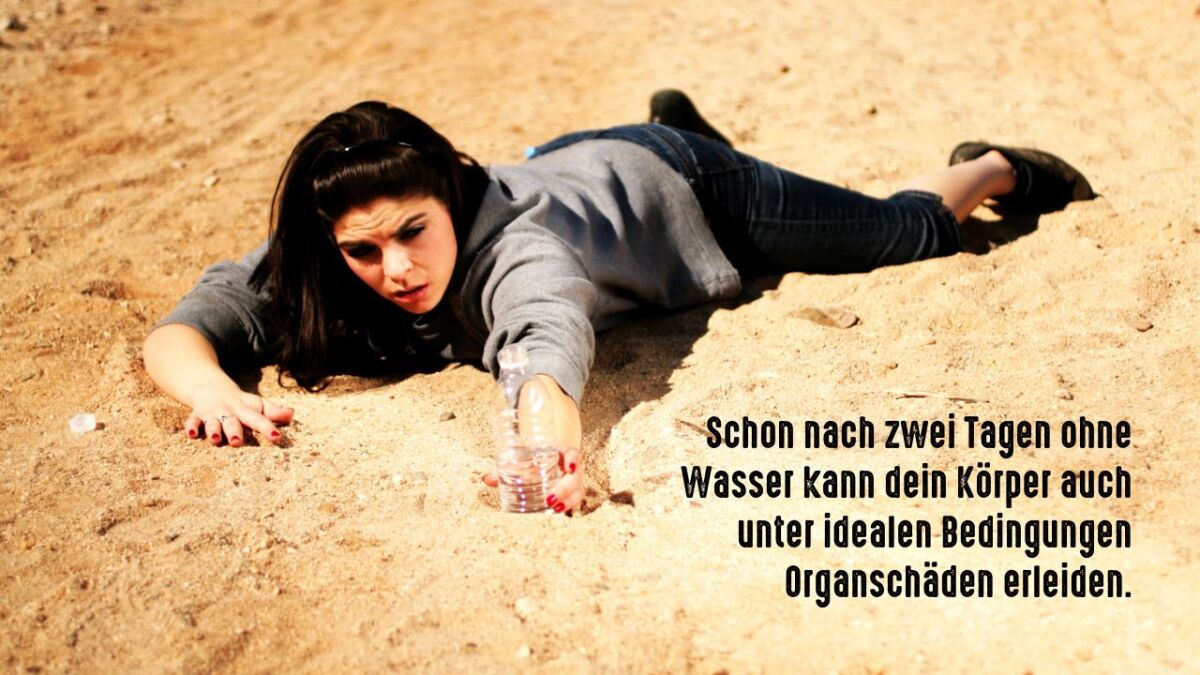
What measures can I take in extreme situations?
Ideally, you should have a range of options available. First, if you're staying somewhere for a longer period, don't rely on just one source of water.
Like how I shouldn't have relied on my hydration bladder, but should have also packed another bottle of water in my backpack.
Furthermore, a water filter is always helpful (find my top list here), it takes up little space and doesn't weigh too much. Alternatively, you can take water purification tablets or create your own filtration system in nature (I'll show you how here).
I've already written a guide on the topic of finding and filtering drinking water here. If you have a way to make a fire, you should also boil your water.
If you're by the sea, there are also ways to remove the salt from seawater. You can find ideas in my guide here: "5 ways to remove salt from water (so you can drink it)".
No water source in sight? Here are two useful tricks:
- Water-rich vegetables and fruits can also protect you from dehydration. While not perfect, they can keep you alive for a while.
- Plant juices can also be a possible source of fluids. Just make sure to research the toxicity of the plants beforehand.
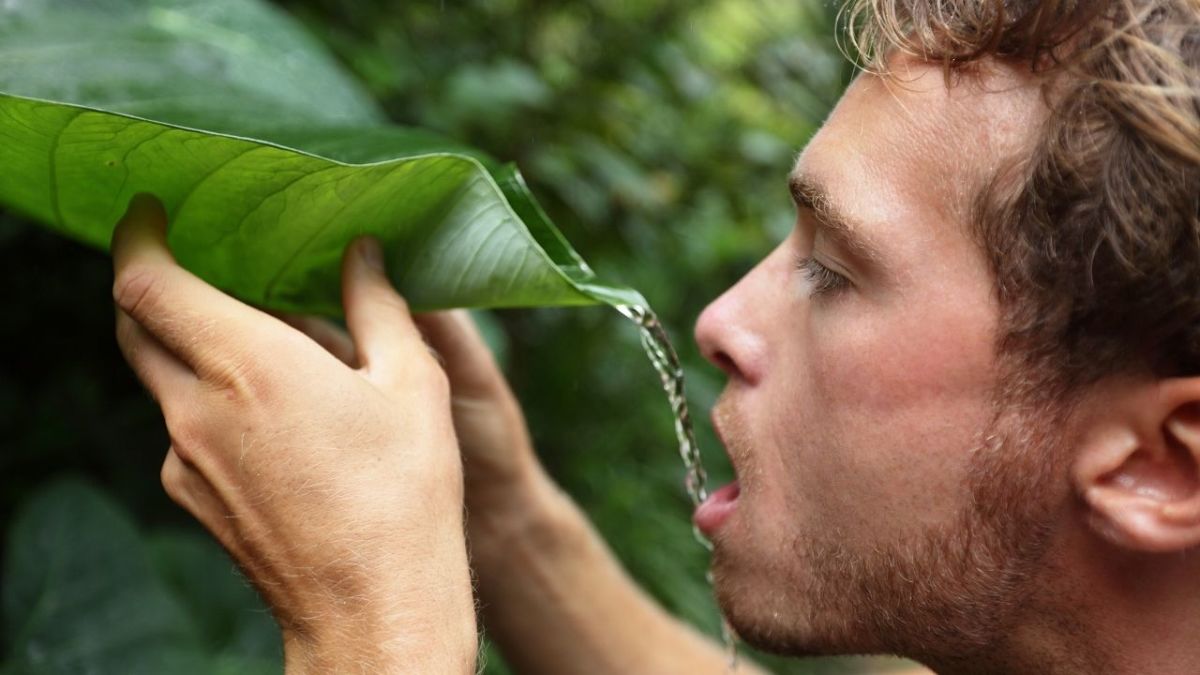
Strategies to avoid water loss
If you have no access to water, there are still some rules of behavior that can help limit your fluid loss.
- First, you should limit your physical activity. Staying in one place would be optimal. This is understandably only possible if you are waiting for help. Otherwise, you must keep moving to escape the situation. It is important to be careful, not to rush or panic. This can have fatal consequences!
- Clothing can also help, as water evaporates on bare skin. With clothing, you do not continue to sweat. Additionally, if possible, breathe through your nose. Breathing through your mouth causes more water loss.
- Finally, I come back to the first point. It may sound trivial, but even thinking requires water in the brain and can also exhaust you. Of course, you don't have to stop thinking completely, but excessive thinking won't get you anywhere in this situation.
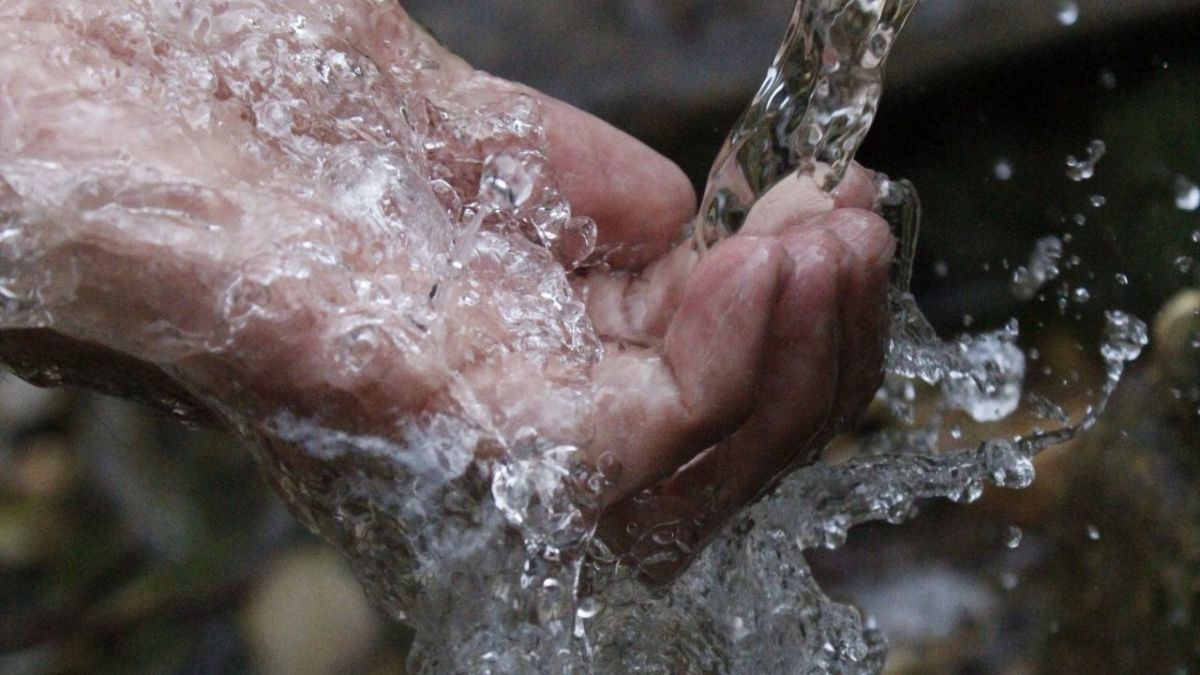
Can dry fasting prepare us for such situations?
I do not recommend dry fasting, as mentioned above, water fulfills vital functions in our body.
However, there are sources that support dry fasting and promise health benefits. Since I am not familiar with this, I can only say that it should be researched extensively.
Afterward, you should definitely consult a trusted doctor and discuss everything with them.
What I certainly don't believe in are so-called Breatharians. There are some people who preach that we can only live on air and light. Meditation is all well and good, but I think relying on it as an alternative to drinking water is dangerous.
Conclusion: Preparation and caution are essential for survival
A lack of water can be devastating. That's why you should equip yourself with alternatives when preparing for the worst.
A small extra bottle, a filter, and knowledge of natural water sources can make all the difference.
Unless you're in extreme conditions, you have about three days until your organs fail and you die.
In the wilderness, you usually don't have the ideal conditions of the 3-rule. Therefore, try to keep your efforts as low as possible, including your mental energy. Above all, don't panic. Only a clear head can provide solutions.
If you can get help somehow, that should be your priority for survival. It allows you to stay in place, conserve energy, and focus on yourself. Otherwise, orient yourself towards water sources and find the quickest way to get there.


Author of the guide
Martin Gebhardt
Hey, I'm Martin. On my blog, you will learn the basics and numerous details about living in the wild. I think survival, bushcraft and the good life in nature are the keys to happiness. Find me here on Instagram or on YouTube. You can find more about my mission on the About Me page.
Was this guide helpful?
25 people found this guide helpful.
5.00 out of 5 points (25 Ratings)
Comments (0)
This post may contain affiliate links. So if you click on the links and make a purchase, I will receive a small commission at no additional cost to you. Click here, to learn more about it.


